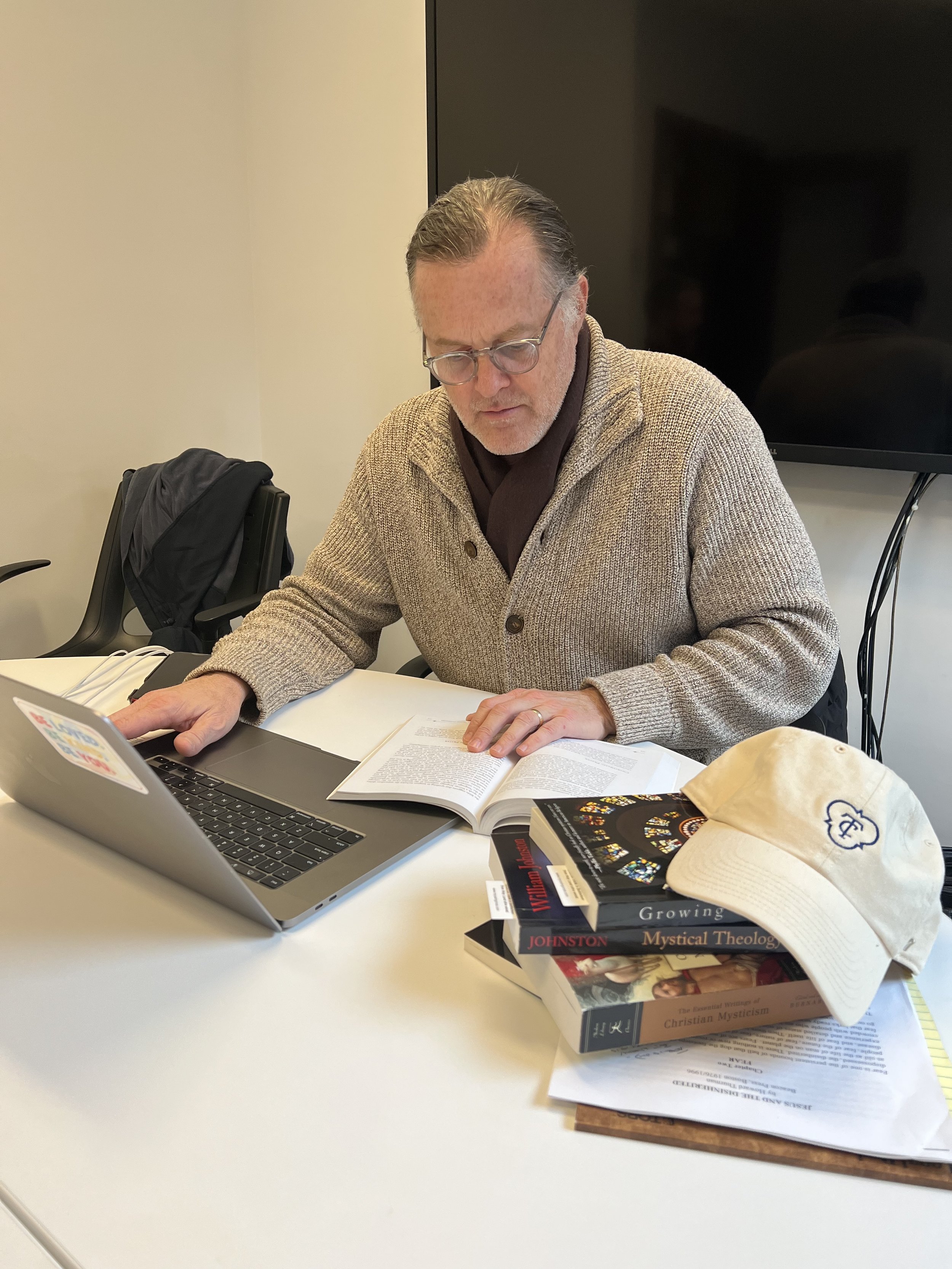On Wednesday, we gathered to begin our Lent series on being human in the body of Christ. It was a wonderful evening with an enthusiastic group, and we enjoyed an excellent dinner thanks to our intrepid Vestry. If you missed last week, please do join us next time. In our program, we began by talking about the Incarnation of God in Jesus Christ, the presence of Jesus in the Eucharist that we receive every Sunday, and what this might tell us about our own lives as human beings who are body-havers and not merely brains in jars.
Christian history is littered with examples of heretics who taught that only the spirit is good, while material creation is somehow evil. But when God created, God named that creation good. And God comes to us not as an idea, or as a concept, or as a nebulous presence, but as a child - as the Word made flesh. And that taking-on of our fleshly nature shows us God’s care for all of us, not just part of who we are, because God meets us where we are.
The logic of the incarnation is also the logic of the sacraments, where God promises to meet us in material stuff - in water, bread, wine - and impart grace through them. In his wonderful book Why Sacraments, our CTI friend Andrew Davison writes this:
Why should we bother with the sacraments? Well, why would God bother with them? The answer is that God thought it fitting to reach human beings in a human way. Calvin approached this with his idea of ‘accommodation’: in his action towards us, God accommodates himself to what we are.
He continues by quoting the 20th century Anglican mystic Evelyn Underhill, who wrote:
In the Eucharist (as in other sacraments) God the Supernatural seeks man [and woman, of course] by natural vehicles and lowly ways, and man, the creature of the borderland, makes his small response by the same means … and thus man learns to recognise the constant mysterious intermingling, yet utter distinctness, of his natural and supernatural life.
Because we are creatures who encounter the world through our five senses, that is how God encounters us. As sacrament-shaped people, we regularly meet God in the places where God has promised to be. And then, we are sent out as those who are ready to see God at work in the world around us and to share the news of what God is up to.
Will you meet me this Sunday where God has promised to meet you?
In Christ,
The Rev. Cn. Dr. Kara Slade, Associate Rector























